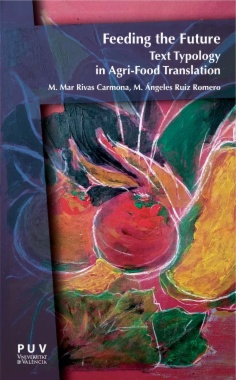El sector agroalimentario abarca un amplísimo abanico de actividades que engloban toda la cadena de valor de sus productos, lo que genera un enorme volumen de traducciones; sin embargo, las investigaciones y los estudios académicos apenas se han ocupado de esta especialidad hasta ahora. Este trabajo pretende arrojar luz sobre la poca delimitación del ámbito de actividad del polifacético y versátil traductor agroalimentario y, a través de una tipología textual de géneros y subgéneros, dentro de los márgenes de la hibridez, la especialización y el registro, aproximar a las características de los textos científico-técnicos, médico-sanitarios, jurídico-administrativos, humanístico-literarios, turísticos, publicitarios y gastronómicos y culinarios agroalimentarios, así como evaluar las competencias que exige su traducción.
- Cover
- Title-page
- Copyright
- Contents
- Introduction
- 1. Current context of agri-food
- 1. The image of Spanish gastronomic culture abroad
- 2. The enhancement of Spain’s gastronomy
- 3. Agri-food and translation in the academic field
- 2. Textual typologisation of the field of agri-food
- 1. Genre and text types
- 1.1. REVIEW OF THE MAIN TEXT TYPOLOGY MODELS
- 1.2. IMPORTANCE AND USEFULNESS OF A TEXTUAL CLASSIFICATION IN TRANSLATION
- 2. Typologies in translation
- 3. Linguistic characterisation of agri-food texts
- 3. The world of agri-food: text types
- 1. Texts as a vehicle of knowledge: agri-scientific and agri-technical texts
- 1.1. GENERAL CHARACTERISTICS OF SCIENTIFIC-TECHNICAL TEXTS
- 1.2. TEXT TYPOLOGY
- 1.3. A SPECIALISED TEXT OF SCIENTIFIC KNOWLEDGE
- 1.4. A TECHNICAL TEXT OF PRACTICAL USE
- 1.5. ASSESSMENT OF THE SKILLS REQUIRED
- 2. Texts as a vehicle of health information: agri-medical and agri-health texts
- 2.1. GENERAL CHARACTERISTICS OF MEDICAL-HEALTH TEXTS
- 2.2. TEXT TYPOLOGY OF MEDICAL-HEALTH TEXTS
- 2.3. A SEMI-SPECIALISED INFORMATIVE TEXT
- 2.4 ASSESSMENT OF THE SKILLS REQUIRED
- 3. Texts with a legal purpose: agri-legal and agri-administrative texts
- 3.1. GENERAL CHARACTERISTICS OF LEGAL TEXTS
- 3.2. TEXT TYPOLOGY OF LEGAL-ADMINISTRATIVE TEXTS
- 3.3. A SPECIALIZED LEGAL REGULATION
- 3.4. AN ADMINISTRATIVE-ECONOMIC AGRIBUSINESS TEXT
- 3.5. ASSESSMENT OF THE SKILLS REQUIRED
- 4. Texts with an expressive value: agri-literary texts
- 4.1. GENERAL CHARACTERISTICS OF HUMANISTIC-LITERARY TEXTS
- 4.2. TEXT TYPOLOGY OF LITERARY TEXTS
- 4.3. A CULINARY LITERARY TEXT IN PROSE
- 4.4. POETIC PRAISE FOR GOOD GASTRONOMY
- 4.5. ASSESSMENT OF THE SKILLS REQUIRED
- 5. Texts that promote a destination: agri-tourist texts
- 5.1. GENERAL CHARACTERISTICS OF TOURIST TEXTS
- 5.2. TEXT TYPOLOGY OF TOURIST TEXTS
- 5.3. AN INVITING TOURIST LEAFLET
- 5.4. ASSESSMENT OF THE SKILLS REQUIRED
- 6. Texts that promote a product: agri-advertising texts
- 6.1. GENERAL CHARACTERISTICS OF ADVERTISINGT TEXTS
- 6.2. TEXT TYPOLOGY OF ADVERTISING TEXTS
- 6.3. AN ‘INNOCENT’ ADVERTISING CAMPAIGN
- 6.4. A ‘NAUGHTY’ ADVERTISING CAMPAIGN
- 6.5. ASSESSMENT OF THE SKILLS REQUIRED
- 7. Tasty texts that feed: agri-gastronomic and agri-culinary texts
- 7.1. GENERAL CHARACTERISTICS OF GASTRONOMIC AND CULINARY TEXTS
- 7.2. TEXT TYPOLOGY OF GRASTRONOMIC-CULINARY TEXTS
- 7.3. AN AUDIOVISUAL TELEVISION COOKING PROGRAMME
- 7.4. A TRADITIONAL RECIPE IN AN ONLINE BOOK
- 7.5. ASSESSMENT OF THE SKILLS REQUIRED
- 4. Concluding remarks
- 5. References

